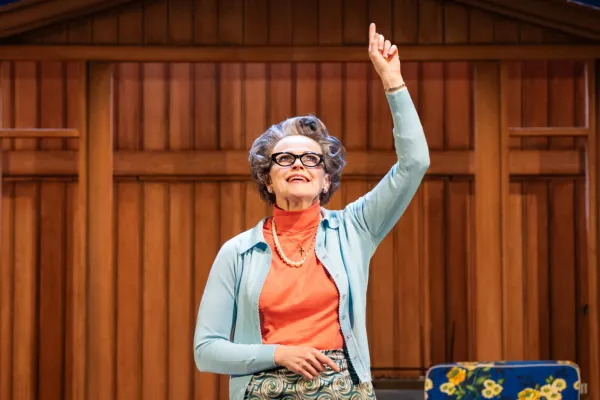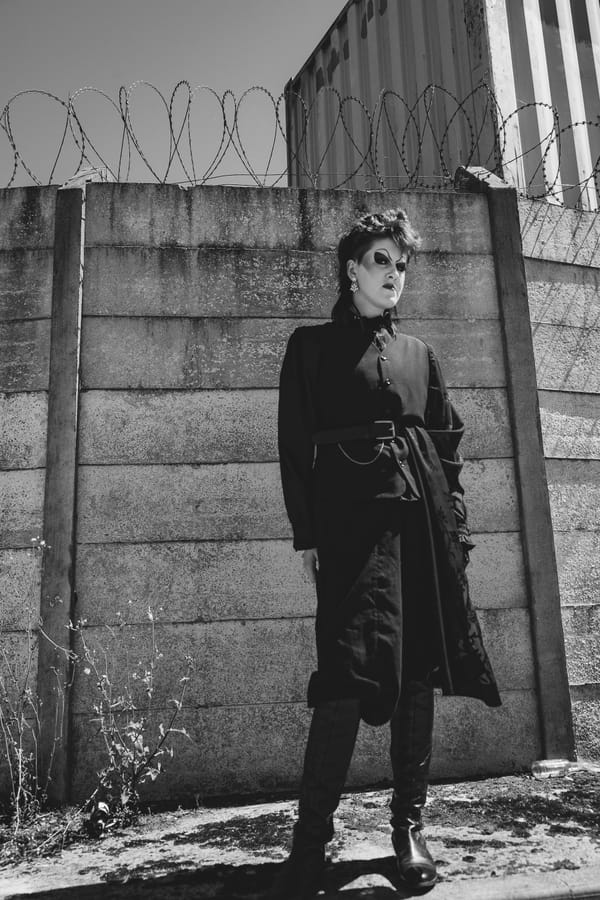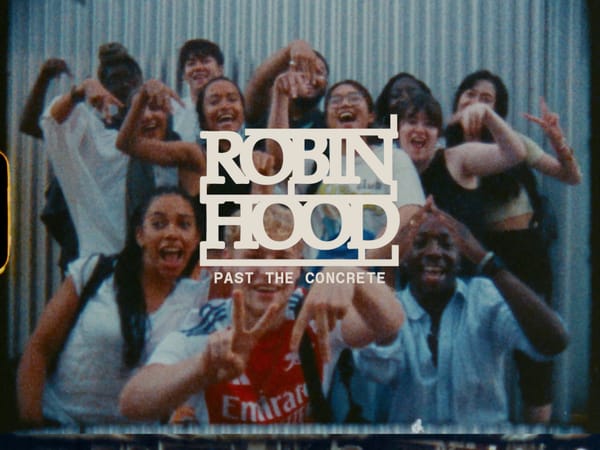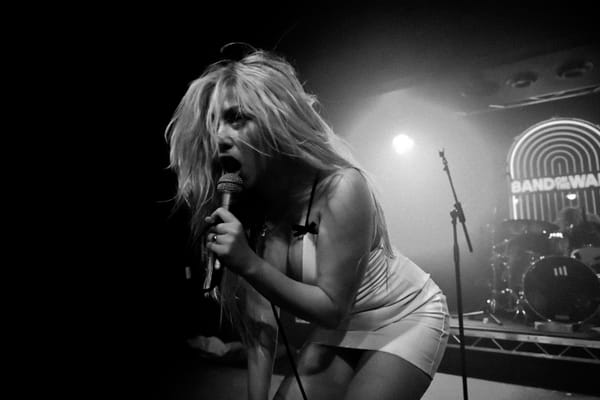Spotlight: Elleanna Chapman, 'Please welcome to the stage … Comrade Beyoncé'
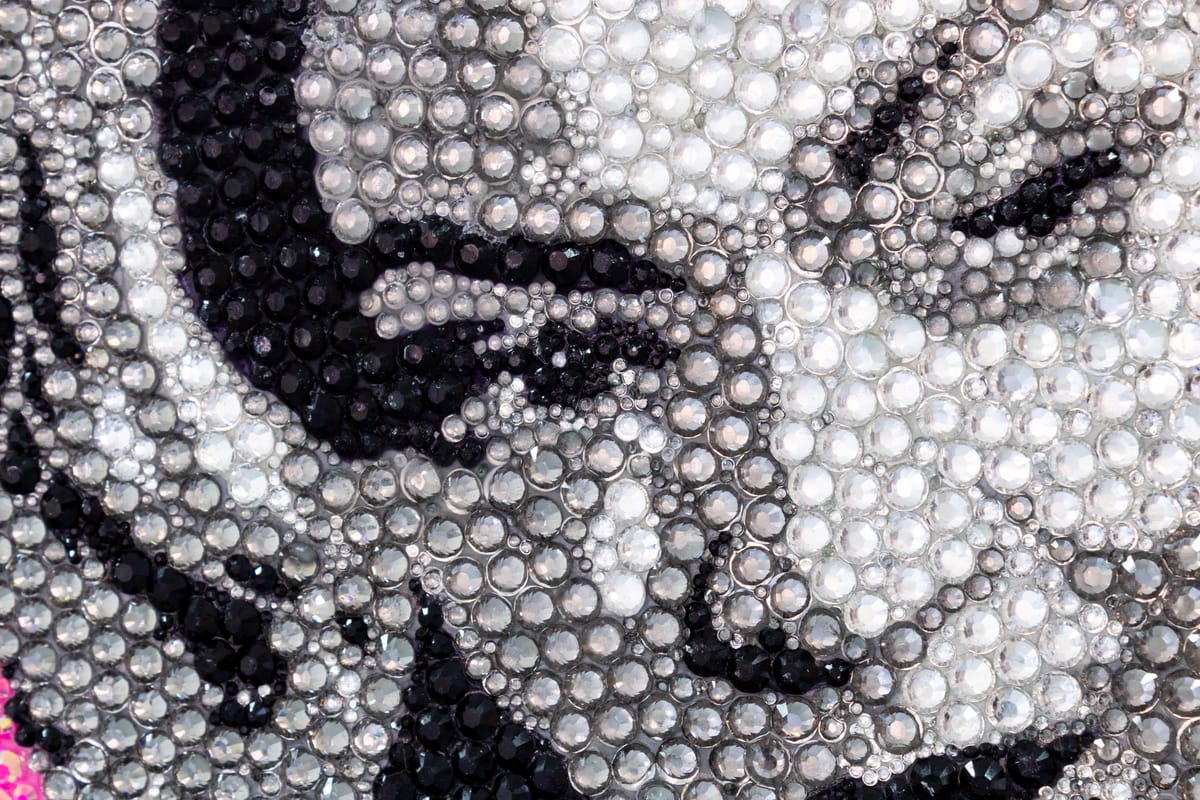
Tell us about 'Please welcome to the stage … Comrade Beyoncé':
This body of work is quite straight-forward in its premise: I have dreamt up a world in which the pop diva Beyoncé is a revolutionary communist. Whereas in previous work I utilise the kitsch as a familiar (but maligned) aesthetic taste as a vessel for my communist agenda, 'Please welcome to the stage … Comrade Beyoncé' explores the shared mass character of the pop cultural and the proletarian. It is a project-in-process, with much left to unpack: this summer, I have been able to make a start on the work over the course of my residency with Good Eye Projects.
Two colour pencil drawings lend this body of work its title, first introducing Comrade Beyoncé to the world. Compiled of hand-rendered fonts stolen from Queen Bey’s expansive oeuvre and from communist publications alike, this piece is a literal juxtaposition of one of my favourite divas and the typography of the Revolutionary Communist International. Beyoncé is ALL UP IN MY MIND, like an itch I can’t scratch. I spend hours recreating her album titles, whilst imagining what it would be like if we actualy shared the same world view. I travel to meetings, paper sales, demonstrations and the like, with Lemonade blasting in my ears. Beyond explicit juxtaposition, I find myself grappling with the contradiction of Bey the billionaire and the progressive image she perpetuates. I dream of a better Beyoncé, and work to make her a reality.
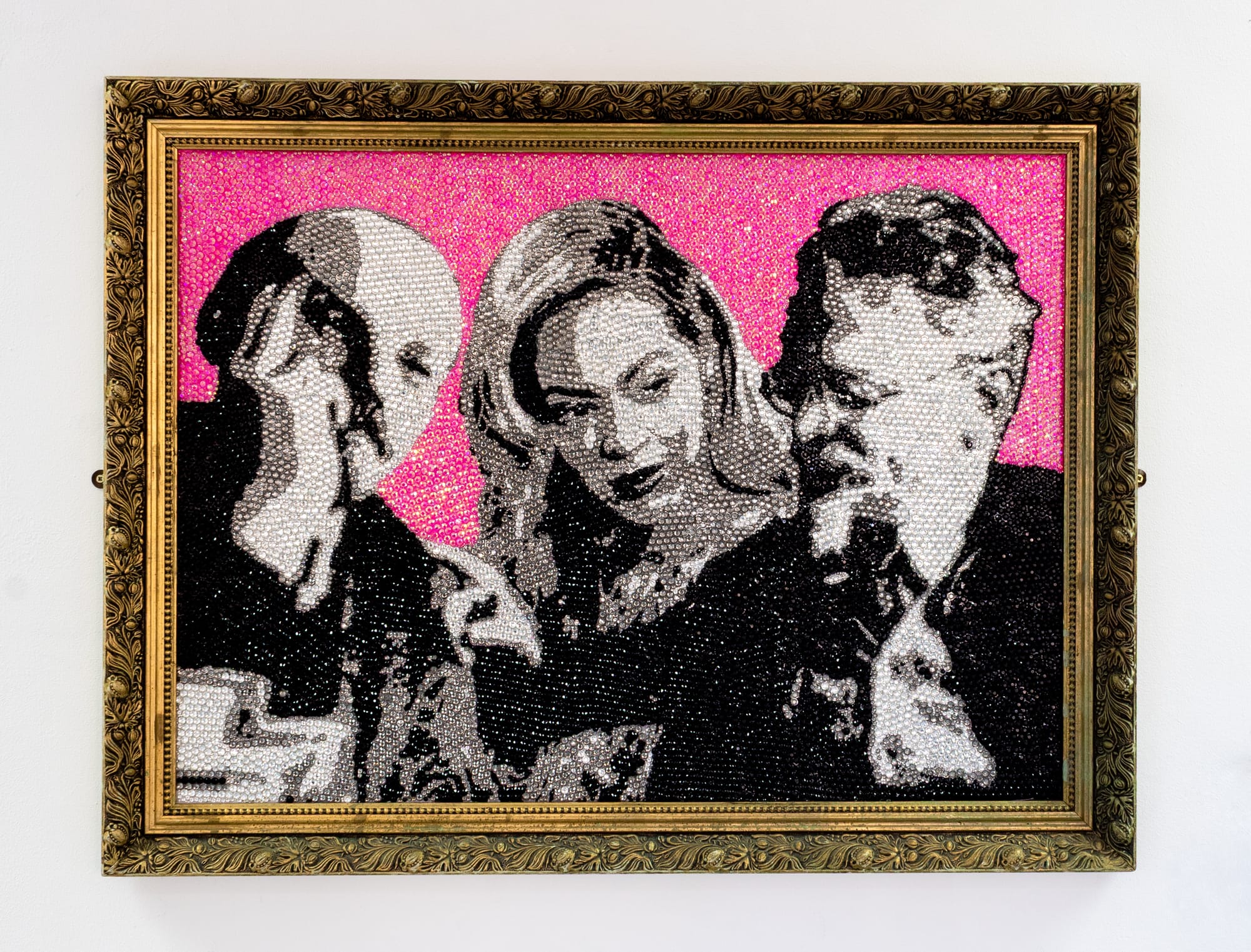
Let me be clear: I commend Ms. Carter’s call for gender equality and her unwavering celebration of Black culture throughout her career. Indeed, there exists an Wikipedia page dedicated to the cultural impact of Beyoncé, and it would be nothing but naïve to overlook all the Queen has done to bring important conversations into the mainstream.
Nonetheless, I want her to go further. Enter 'Run the World (Proles)'. ‘Who are we? What do we run? We run the world! (Who run this mother?)’ echoes quietly out of a pink iPod. Underneath a tangle of jelly earphones, a slightly sticky newspaper clipping reads:
Try telling Beyoncé she cannot, or should not, do something, and she will only prove you wrong.
We can reveal the multi-talented megastar has already begun her new, proletarian project, understanding that the true way to end all forms of oppression lie in overthrowing capitalism - she is unapologetically upping the political ante.
An insider told us: “Beyoncé is renouncing her former identity politics, having come to understand it as individualistic and fundamentally limited - even reactionary.”
“She has acknowledged that pushing for diversity at the top does nothing to address the wider inequality in society, and wants to politicise her fans. Her new Marxist position aims to similarly combat racism and sexism, but with class-based methods.”
Identity politics has been promoted by a significant section of the ruling class, especially within the USA. A billionaire, it is perhaps no surprise that Bey used to take a similar position, with hits such as ‘Run the World (Girls)’ and ‘Diva’ being widely considered feminist anthems.
Now, Beyoncé is seeking to urgently update her politics, asserting that identity politics only serves to divide the working class and destroy class consciousness. What is needed is class war against al the billionaires, the bankers, and their rotten system - what the superstar plans to do with her own wealth, however, is still to be revealed!
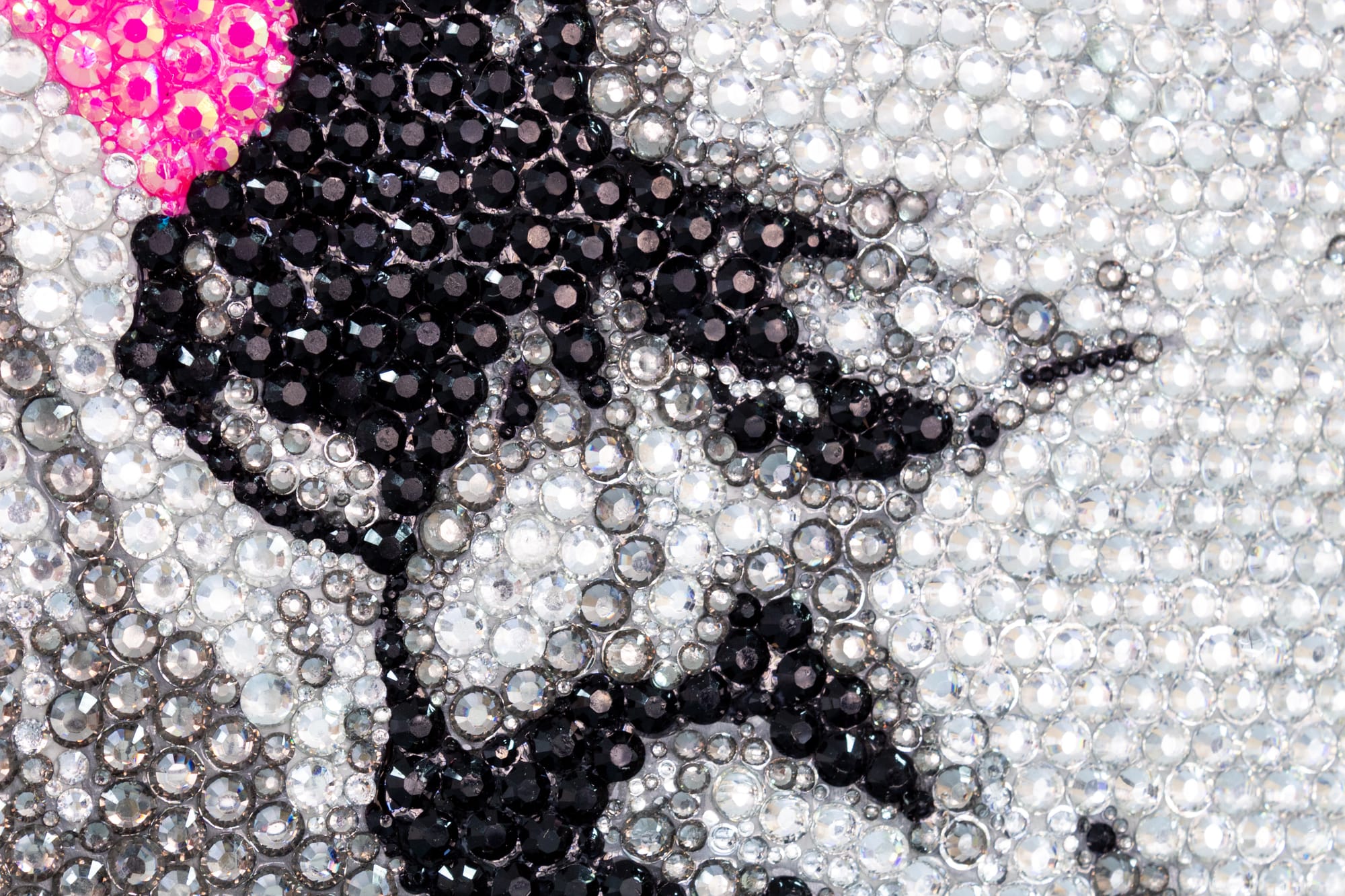
Sitting somewhere between fandom and critique, 'Run the World (Proles)' recontextualises Beyoncé’s hit single as a call for class solidarity. Comrade Bey’s own agenda is no longer limited to the confines of capitalism, and real equality can be fought for, for al. In the words of Marxist revolutionary and theoretician, Ted Grant: ‘Not a wheel turns, not a phone rings, not a light bulb shines, without the kind permission of the working class’. Turns out, proles really do run the world, after all.
In light of her communist turn, it only felt appropriate that my Queen Bey got her hands dirty, becoming a revolutionary class fighter in her own right. 'Comrades Lenin, Beyoncé and Trotsky discuss the Party' is a glittering depiction of the three newly acquainted comrades engaging in strategic debate. In his Transitional Programme, Trotsky identifies that: ‘the world political situation as a whole is chiefly characterised by a historical crisis of the leadership of the proletariat’. If revolutions are a fact of history, what stops them from being successful, when push comes to shove? Lenin looks proudly on as Beyoncé chimes in; what is missing, then, is the radical leadership of the proletariat. A Communist party is nothing if not the collective memory of the working-class, and it is the role of any serious Marxist to build that party, learning from the struggles of the past in order to fight for a better future.
'Please welcome to the stage … Comrade Beyoncé' is currently on display as part of the Summer Residency Studio Show at Good Eye Projects, London, until 14 September 2025.
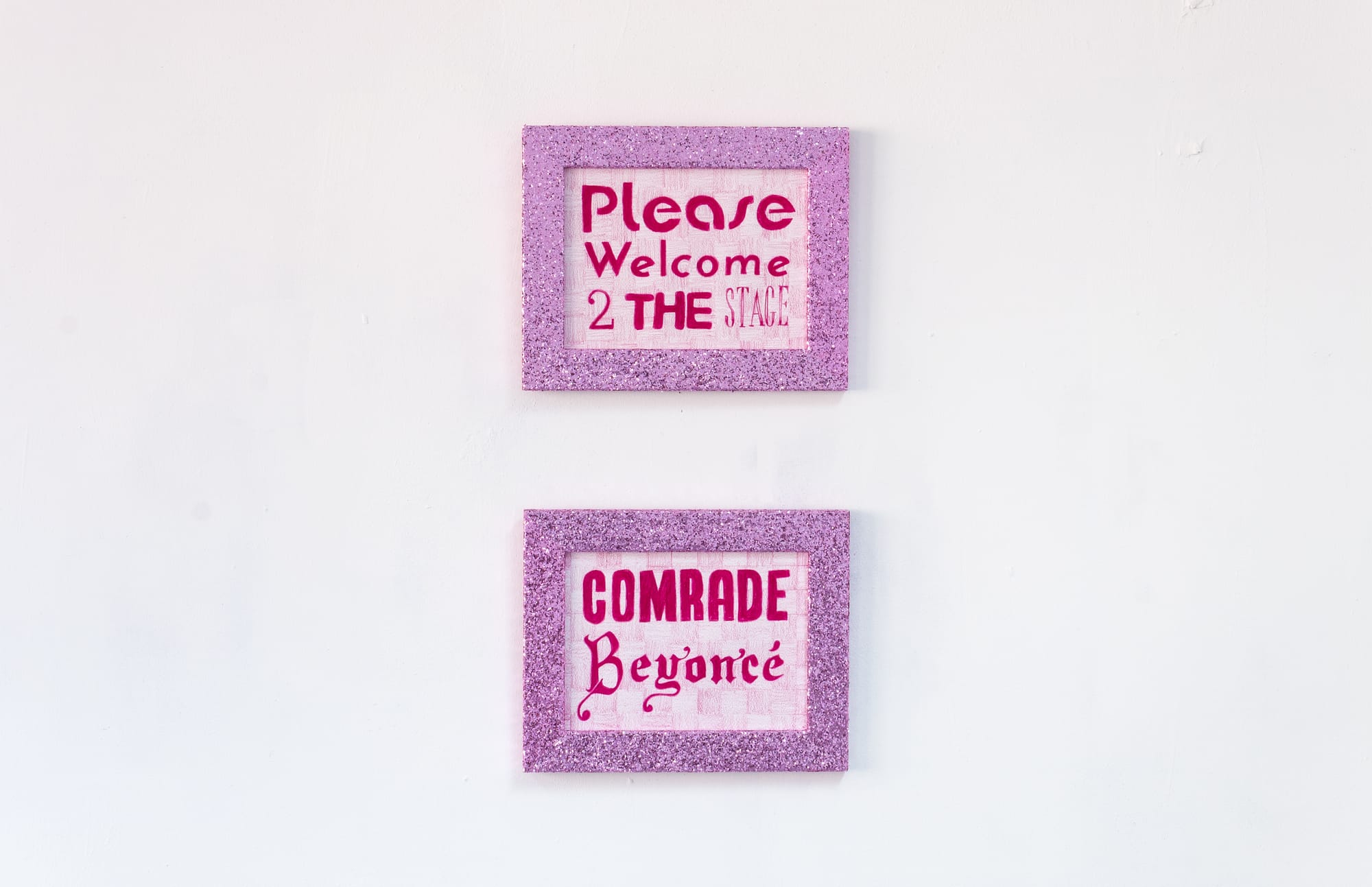
Tell us about your practice:
I am a communist and artist. For me, you cannot have one without the other. I am interested in unpacking the political potential of art, or, speaking more plainly, the role culture can play when it comes to revolution and class struggle. When in the studio, I focus on the aesthetic side, playing with what I cal the ‘fabulous-and-familiar’ to develop a new visual language for my communist politics. I want to reclaim my working-class heritage and revolutionary history, but am completely bored of the Stalinist pastische of Socialist realism. I find it much more timely to explore how revolutionary ideas can sit amongst existing tastes and icons, especially those which are considered to be low-class - which tends to be what I am most drawn to.
Underpinning the studio side, I am an actively organised communist and member of the Revolutionary Communist International, an orthodox Marxist (read, Trotskyist) organisation. I joined the party when studying at Central Saint Martins, and have been a member for almost f ive years. Currently, I am the secretary of the Mile End branch, and am essentialy trying to engage with Marxist theory and the history of class struggle, whilst simultaneously getting out onto the streets to discuss these ideas and recruit other radicalised young people to join the f ight against capitalism. It can be rather difficult to explain this to the people of the art world, but I posit that my political organising is a kind of social practice that both justifies and informs my work in the studio. I wholeheartedly believe in the necessity to overthrow capitalism altogether, and to understand that we, the workers, are capable of doing just that.
What we need, in my opinion, is a genuine revolutionary leadership - my work with the Revolutionary Communists gives me the framework, education, and audacity to try and build just that. In terms of the methods I use to achieve my political and artistic aims, I often steal bits and pieces from society’s expansive image (and pop) culture to use in the name of proletarian subversion. Materially, I am informed by my nan’s house and her love for kitsch, my upbringing in Essex and my affinity for al things camp and excessive (hence the rhinestones), as well as protest culture and flyposting. The ideas are the most important, but their realisation, equally, needs to marry together my myriad intentions and references within a single work.
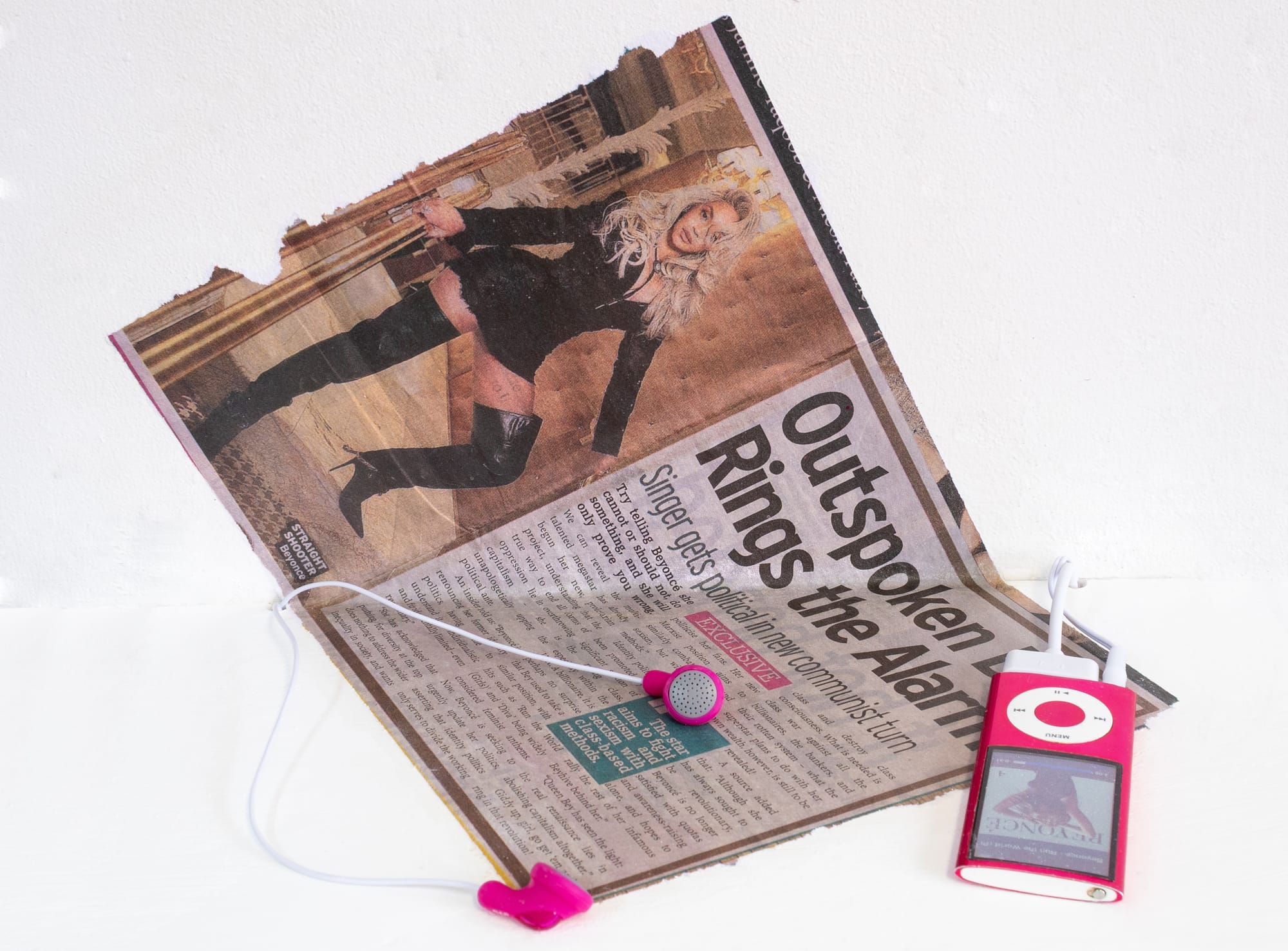
Eleanna Chapman (b. 2002) is an Essex-born artist and communist who lives and works in London. She is proudly working-class, just in case that wasn’t clear from her oeuvre. In 2021, she attended Central Saint Martins, earning a distinction in her Fine Art Foundation Diploma. She was the first in her family to attend university and graduated with First Class Honours from The Ruskin School of Art, University of Oxford, in 2024. Always grafting, Chapman has been working freelance in the art industry since 2022.
Since graduating, Chapman has exhibited in numerous shows across the UK, and has screened her video work at significant institutions, such as Focal Point Galery and Modern Art Oxford. She has won a place on various residencies, including Good Eye Projects (London, 2025), Hypha HQ (London, 2025), WOMB (London, 2024–2025, supported by Bow Arts), Cambridge Artworks and Artspace (Cambridge, 2024), and The Koppel Project (London, 2023). Despite being early in her career, Chapman has been commended for her practice, having received the Eaton Fund (2025), the Supporting Act Foundation’s Creative Bursary (2023), as well as the Egerton Coghil Landscape Prize (2022). Most recently, she has been announced as the 2025 recipient of the Emergent Residency and Bursary, awarded by Shape Arts and the Baltic Centre for Contemporary Art. As such, Chapman will conduct her first institutional residency this coming November, researching al things class-conscious within the towering walls of the Baltic.
Chapman’s practice has frequented the pages of Plaster, FAD, and émergent magazines. Similarly, Whipped at Under the Spel Art Space (London, 2025) - which featured the work of Chapman, Gina Fischli, Jamie Fitzpatrick, and Unyimeabasi Udoh – was recommended by gallerist and curator Hector Campbell in The Shock of the Now. A fan of al things print, Chapman has similarly contributed to a number of zines since 2022, as well as self-publishing her own works The Cute Communist: Exploring the political potential of a cute aesthetic (2024) and Kitties Want Communism (2025). What Chapman will get up to next is still to be seen, but above all, she hopes that an international socialist revolution will be on the cards.


